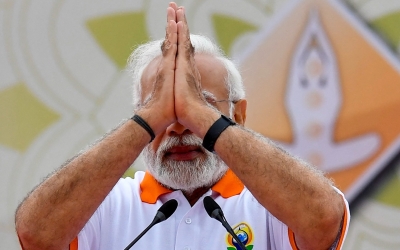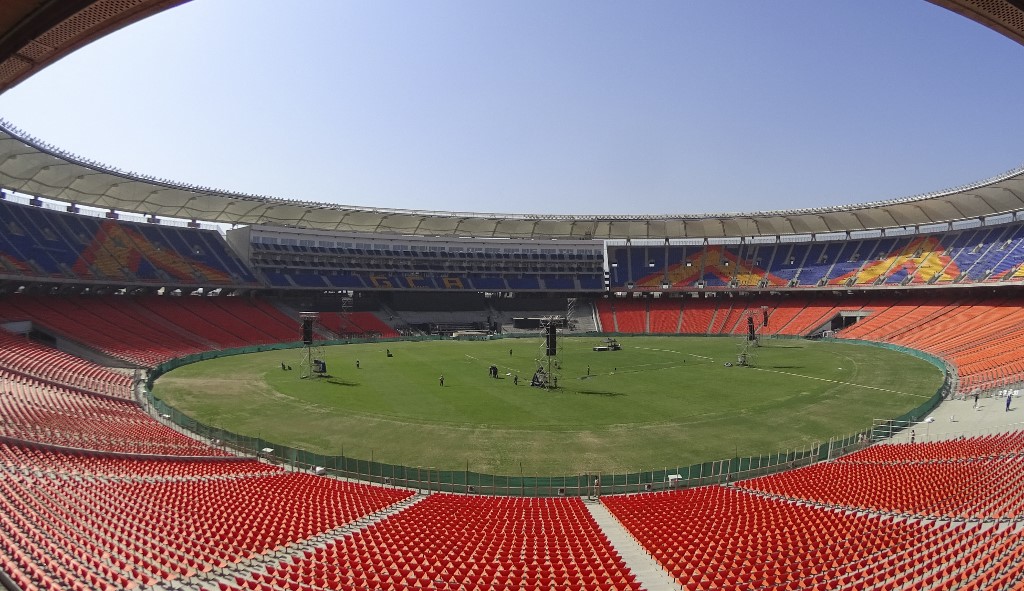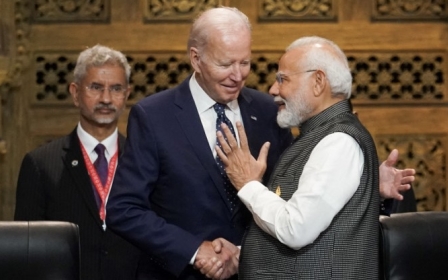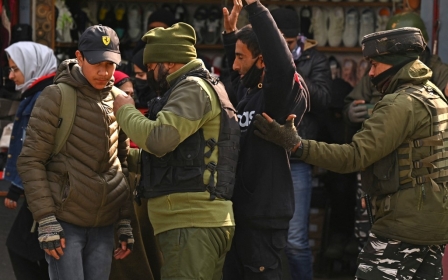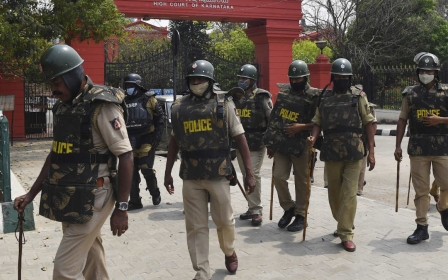Sporting world must challenge India over 2023 Cricket World Cup
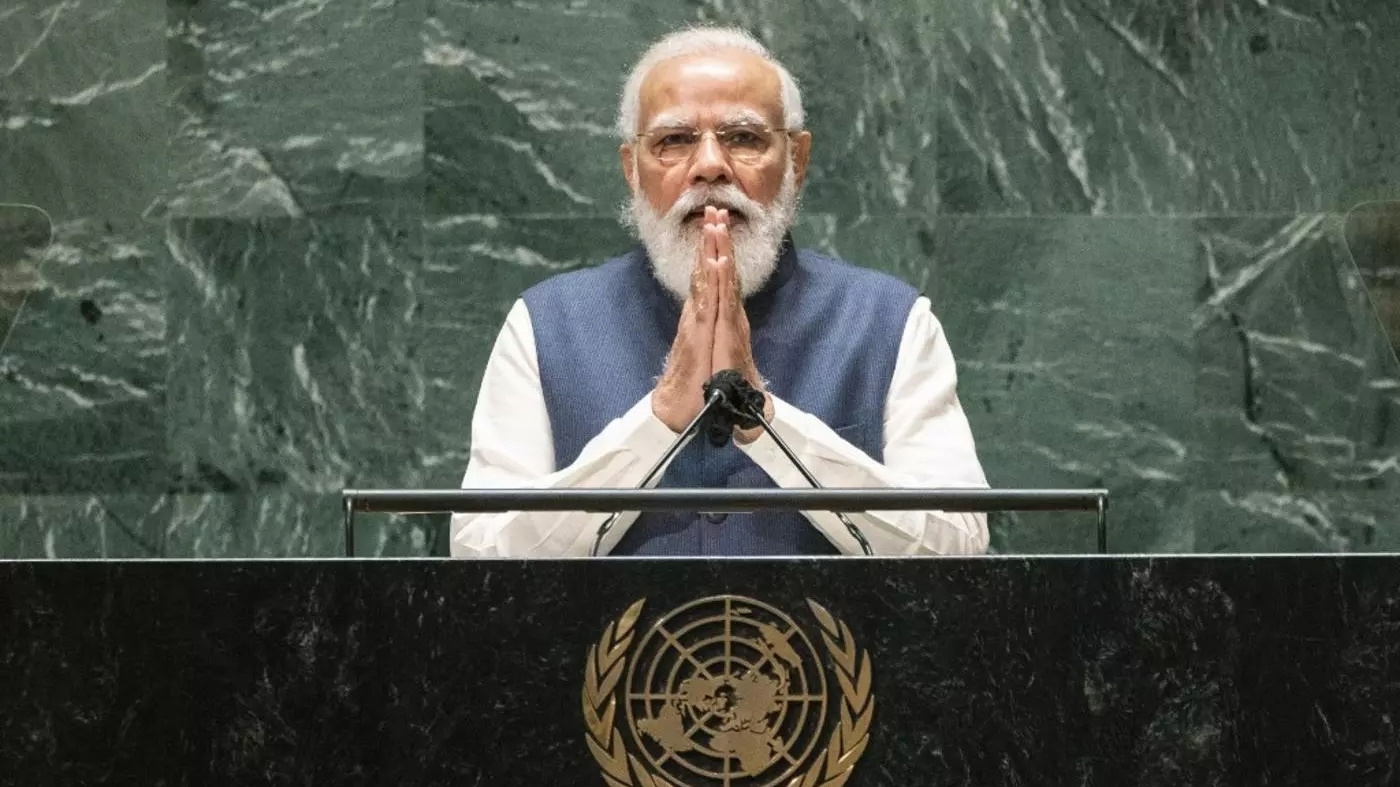
Next spring, India is due to hold the most important general election in the nation's history - a contest which will determine whether India continues its downward spiral into bigotry and authoritarianism, or return to the rich pluralistic traditions of its past.
Though the election is not due to be held until April, Prime Minister Narendra Modi's campaign will in effect be launched this coming October, when cricket-mad India hosts the World Cup.
Modi, following in the tradition of other populist leaders, is determined to extract every last drop of political advantage from the sporting event.
We know this because Modi recently ordered the world's largest cricket stadium, where the World Cup's first game is set to be played, renamed after himself. This sent a message that the Indian cricket team represents his own political party - the Bharatiya Janata Party (BJP) - and not the nation as a whole.
Thus far the international sporting world has not dared to challenge Modi's appropriation of Indian cricket. It's high time it did so.
Cricket prides itself on fairness and decency. Yet Modi is not just the nemesis of India's democratic institutions and rule of law. He is also the figurehead of a movement which has launched deadly attacks on India's minorities.
Those who follow events closely speak of possible genocide against India's 200 million Muslims. There's little reason to believe they are being alarmist.
Early signs of genocide
In India, Muslims fear for their future. In many areas they are subject to the arbitrary demolition of their homes and the constant threat of lynch mobs. In eastern Assam, nearly two million have had their citizenship taken from them, leaving them stateless. On Tuesday, an imam was killed as far-right Hindus attacked a mosque on the outskirts of New Delhi. Such attacks are commonplace.
Jammu and Kashmir, under a longstanding Indian military occupation, was stripped of its autonomous status in 2019.
Gregory Stanton, president of Genocide Watch, predicted the 1994 Rwandan genocide five years before it happened. Last year, he said that "the early warning signs of genocide are present in India". Stanton further pointed to similarities between the situation in India and Myanmar before the killings there.
A report by Georgetown University's Bridge Initiative found that eight out of 10 stages of genocide are present in India, with indicators of the ninth stage, extermination, "becoming more and more visible".
It is not entirely unrealistic to make comparisons between the political exploitation by Modi of this autumn's World Cup in India and the notorious Berlin Olympics hosted by Adolf Hitler in 1936.
Hitler's propaganda genius, Joseph Goebbels, saw the opportunity to turn the Olympic Games into a political event. The rest of the world played along, sending the message to the German population that Hitler was a figure respected on the world stage.
Bear in mind that Modi received his political education in the RSS (Rashtriya Swayamsevak Sangh), a paramilitary organisation with nearly 600,000 members. Founded in 1925 and modelled on European fascist movements, it is the main proponent of Hindu nationalism, which is focused on the idea that Indian Muslims are a foreign threat. The BJP, in power today, is its political wing.
One prominent RSS figure, Madhav Golwalkar, approved of Hitler, suggesting in 1939 that Germany's "purging the country of the semitic Race - the Jews" was "a good lesson for us in Hindustan [India] to learn and profit by".
Although in 2006, the RSS itself disowned one of Golwalkar's books, today he is revered among RSS followers. So, increasingly, is Nathuram Godse, the Hindu nationalist who assassinated Mahatma Gandhi in January 1948.
Anti-Muslim violence
At the 1936 Berlin Olympics, although all the signs were there, few had the imagination to look ahead to the Holocaust of the Jewish people, which would start in 1941. Now there are some of the same signs of a potential genocide in India.
This is a moral emergency and thus far nobody seems to have noticed. US President Joe Biden, supposedly the leader of the free world, recently gave Modi a hero's welcome in Washington.
Britain has been no better. As we showed earlier this year, Prime Minister Rishi Sunak failed to stand up to Modi when the Indian government launched a tax raid, widely seen as an intimidation tactic, on the BBC after it aired a documentary detailing Modi's role in the 2002 Gujarat anti-Muslim pogrom.
The World Cup is just three months away. The lack of any significant controversy over India's human rights record is all the more bewildering given the run-up to the Fifa World Cup in Qatar last year.
Media coverage was less about football, and more about Qatar and human rights.
The BBC decided not to broadcast the opening ceremony live, with its star presenter Gary Lineker lecturing TV viewers on Qatar's human rights record and Labour leader Keir Starmer boycotting the event.
It is certainly the case that Qatar has human rights issues. But these pale in comparison to what is today taking place in India.
Escalating by the day
The situation is escalating by the day. In Gujarat last month, Muslims protesting the possible demolition of an Islamic shrine were rounded up and publicly flogged.
Indian Christians are under attack. Since May, Hindu nationalist militants have killed over 100 Christians in northeastern Manipur, destroying churches and displacing 50,000 people in a brutal campaign of terror.
This anti-Muslim violence spreads to the cricket field. Indian police arrested Muslims for allegedly supporting the Pakistani cricket team after Pakistan beat India in a T20 World Cup game two years ago. In Indian-occupied Kashmir, criminal cases were filed against students in two medical colleges for celebrating Pakistan's win. Three Kashmiri students were even imprisoned on sedition charges for three months for sending WhatsApp messages in support of Pakistan.
To be fair, India's cricketers behaved well. When the only Muslim player in India's squad, Mohammed Shami, was abused on social media, India's captain Virat Kohli bravely defended him. "Attacking someone over their religion is the most pathetic thing that a human being can do," he said.
Do we really want to help Modi turn a global sporting event into a political rally at a time when India, a global superpower, is turning virulently against its minority populations?
But India's prime minister has not shown the same humanity. His latest propaganda tool, the Narendra Modi Stadium, will host the opening and final games in the World Cup - as well as the much-anticipated India-Pakistan clash. The stadium is in Gujarat, Modi's home state and the site of the brutal 2002 pogrom when he was its chief minister.
Modi hosted the Australian prime minister, Anthony Albanese, at the Narendra Modi Stadium earlier this year to watch an India-Australia exhibition match, before official talks between the two leaders. They did a lap of honour around the pitch in a buggy and posed for photos with the team captains. Modi was presented with a framed portrait of himself.
The eminent journalist Gideon Haigh responded in The Australian with a powerful article asking "why are we tolerating the intolerant" and drawing attention to the way Modi's BJP had subverted Indian cricket governance.
Moreover, the BCCI (Board of Control for Cricket in India) has often been accused of serving the BJP’s partisan interests. Indeed, its secretary is Jay Shah, son of Home Minister Amit Shah - and Ashish Shelar, a prominent BJP politician, is treasurer. Shelar made sure to thank Modi and Amit Shah, among others, "for their guidance" when he secured the role in October 2022.
As night follows day, the BJP government will use the Cricket World Cup to boost its popularity. Do we really want to help Modi turn a global sporting event into a political rally at a time when India, a global superpower and the world's most populous country, is turning virulently against its minority populations?
As the thrilling Ashes series draws to a close in England, the attention of the cricket world is turning to the coming Cricket World Cup. Now is the time to ask the question.
The views expressed in this article belong to the authors and do not necessarily reflect the editorial policy of Middle East Eye.
Middle East Eye propose une couverture et une analyse indépendantes et incomparables du Moyen-Orient, de l’Afrique du Nord et d’autres régions du monde. Pour en savoir plus sur la reprise de ce contenu et les frais qui s’appliquent, veuillez remplir ce formulaire [en anglais]. Pour en savoir plus sur MEE, cliquez ici [en anglais].



